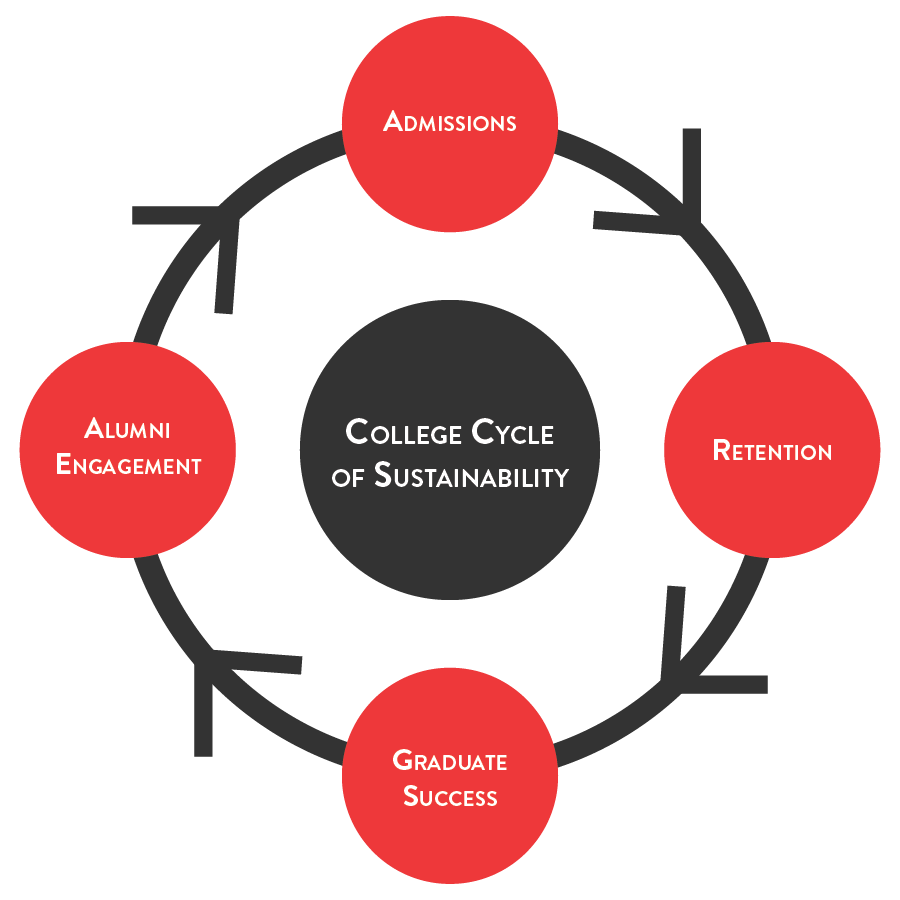This guest post is by Sheila Curran, CEO of Curran Consulting.
Why do students go to college? Most academics would be horrified to discover that it’s not to get a great education and become educated citizens of the world.
Today’s students still want high quality academics, but they take the educational benefits of college for granted. What students really expect from today’s college, as reported in the Higher Education Research Institute’s survey of incoming freshmen, is to get a leg up. Three of the top four reasons for coming to college (and the percentage of students who cited that reason) are related to careers:
- To be able to get a better job (86%)
- To get training for a specific career (77.1%)
- To be able to make more money (72.8%)
There are many reasons for the increased focus on careers—most notably the ever-higher cost of college and the average debt load of close to $30,000. Curiously, the concern about return on investment has not translated into institutional investment in Career Services; according to the National Association of Colleges and Employers, between 2007 and 2014, support for career services actually decreased for schools of all sizes. There appears to be little trust that traditional services provided by colleges—however helpful—can make a significant difference to the career outcomes of students.
One promising idea that is being implemented in a wide variety of schools, including Miami University of Ohio and Augustana College in Illinois is the Career Community. Borne from the recognition that there will never be sufficient staff in a career services offices to meet the specific and diverse career needs of all students, the Career Community engages alumni, parents and friends of an institution in providing career information, advice and mentoring. Career Community members often use their specialized knowledge of a particular career field to provide tangible advantages to students seeking jobs or internships.
The benefits of a Career Community on the professional success of students and graduates is obvious. What is less obvious is that the Career Community can positively influence one of the most fundamental goals of any college or university: attracting and retaining applicants.
In order for a college to thrive, it needs students to not only matriculate, but also to stay and to graduate. Prospective students will be more likely to attend a college if they see and hear from successful alumni who attribute their success to the school and are actively engaged in helping the next generation of students achieve similar success. And, students who see the value of their education embodied in their older peers are more likely to stay in school—especially if they feel they have an inside track to internships and jobs through the advice and opportunities provided by members of the Career Community.
The success of graduates is not only good for individuals, it can also benefit the institution, as the following graphic suggests:
The Alumni Attitude Study surveyed 500,000 alumni from 235 colleges. As Robert D. Shoss explains in his remarks about the survey “we looked for questions with the highest correlation to how an alumnus/a answered a question about their intent to financially participate with the university…As it turns out, loyalty for the university is the overwhelming winner.” Mr. Shoss goes on to say that “relationship with the university” is a reasonable proxy for loyalty.”
Colleges and universities know that their bottom line depends on attracting sufficient students, keeping them in school, and raising money from alumni. A vibrant, managed Career Community will lead to the achievement of multiple strategic goals, with the added bonus of responding to some of the most fundamental desires of students: achieving professional success after graduation.
Want more on the value of career communities? Get our free whitepaper on collaboration between alumni relations and career services.


